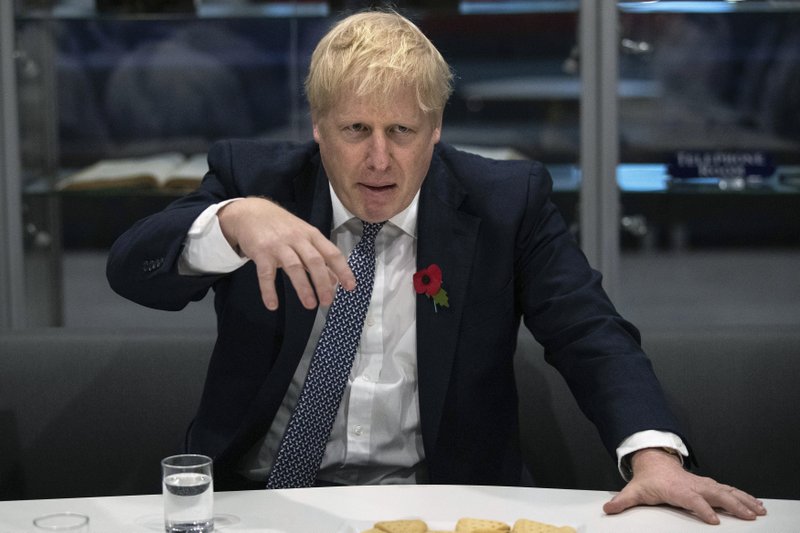Britain’s election campaign heated up Sunday with Prime Minister Boris Johnson saying he would apologize to Conservatives for failing to take the U.K. out of the European Union by Oct. 31 and Brexit Party leader Nigel Farage saying he won’t personally run for a seat in Parliament.

Johnson’s promise to have Britain leave the bloc by Oct. 31 had been the central plank in the party leadership competition that brought him to power in July.
He told Sky News on Sunday that it was a matter of “deep regret” that he failed to do so. Asked if he was sorry about missing the deadline, Johnson said: “Yes, absolutely.”
Johnson’s failure to deliver may cost him some backing from voters drawn to his fiery rhetoric on the need to finalize Brexit, including his famous statement that he would rather “die in a ditch” than seek another extension.
But his pledge to leave by Oct. 31 with or without a divorce deal was blocked by Parliament, which required him to seek a Brexit delay. The EU has granted a three-month Brexit extension until Jan. 31.
Johnson pushed hard for an early national election on Dec. 12 in which he hopes to get a more Brexit-friendly Parliament that will — finally — pass his proposed deal with the EU.

He also said on Sunday that his government wouldn’t approve another legally binding referendum of independence for Scotland.

Get breaking National news
The campaign won’t officially begin until after Parliament is dissolved on Wednesday, and various party alliances are still being formed.
Farage, the leader of the Brexit Party, told the BBC that he can “serve the cause of Brexit” better by traveling throughout Britain to support 600 Brexit Party candidates rather than by seeking a seat for himself.
“I don’t want to be in politics for the rest of my life,” he said.
Farage has failed in multiple attempts to win a seat in the British Parliament, although he has long been a member of the European Parliament, which he has used as a pulpit to criticize the EU.
He said it was difficult to back party candidates nationwide while trying to win over a local district.
Farage has vowed that his party will contest every seat in England, Scotland and Wales against the Conservatives unless Johnson drops his Brexit agreement, which Farage and his party think is worse than a no-deal Brexit.
But the Brexit Party hasn’t yet named its candidates and it’s not clear what kind of impact it will have.

All seats in the 650-seat House of Commons are up for grabs in the Dec. 12 election. Johnson’s Conservatives have an early lead in most opinion polls, but analysts say the election is unpredictable because Brexit cuts across traditional party loyalties.
The left-wing Labour Party is trying to expand the campaign focus from Brexit to include domestic political issues such as schools, health care and Britain’s social inequities.
The centrist Liberal Democrats want to cancel Brexit and are trying to woo pro-EU supporters from both the Conservatives and Labour in Britain’s big cities and liberal university towns.
The party may enter a tactical alliance with smaller parties also opposed to Brexit.







Comments
Want to discuss? Please read our Commenting Policy first.